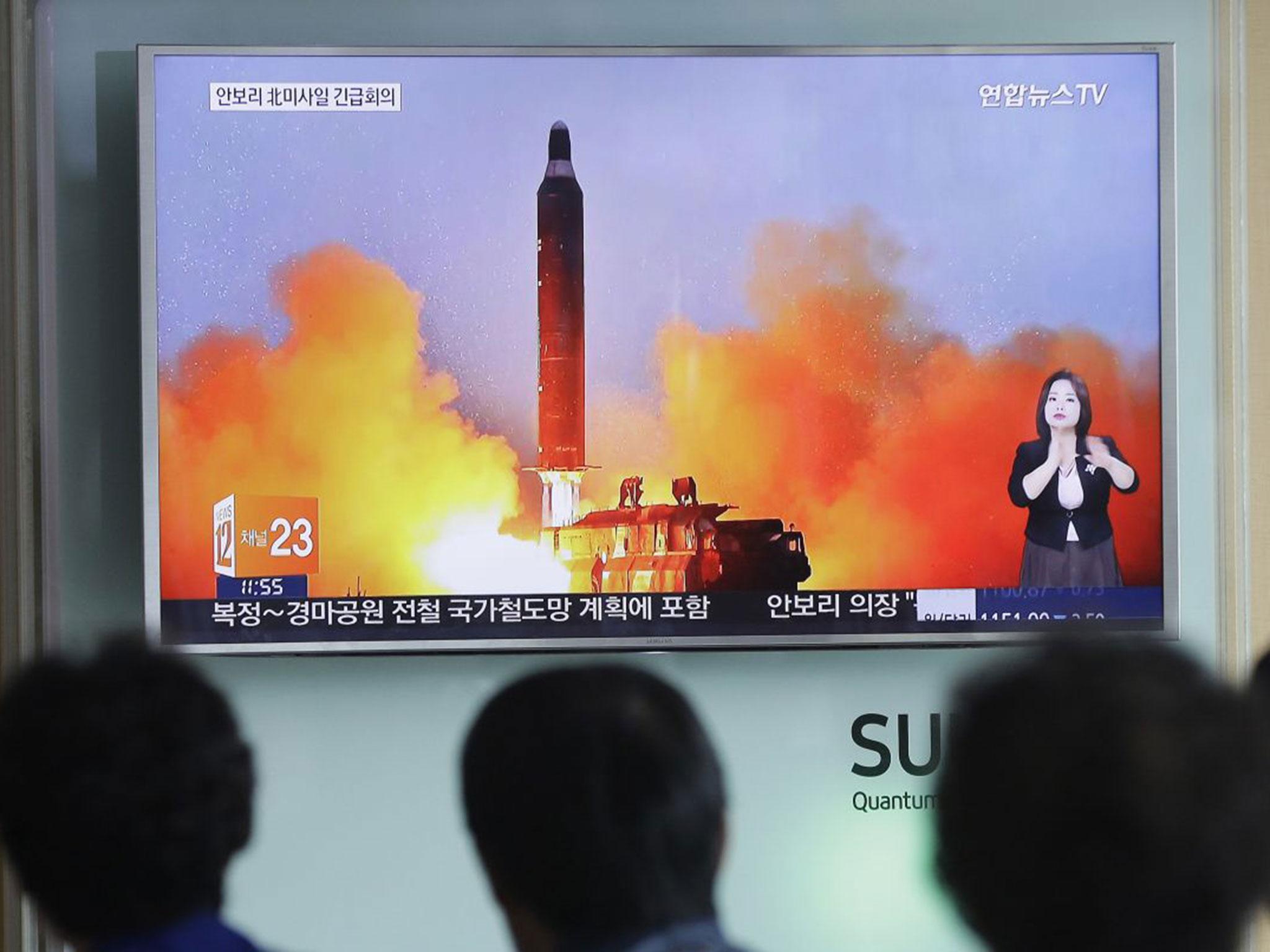US military detects 'failed ballistic missile launch' in North Korea after state media vows revenge for 'hostile acts'
US Strategic Command reports attempted launch near city of Kusong

Your support helps us to tell the story
From reproductive rights to climate change to Big Tech, The Independent is on the ground when the story is developing. Whether it's investigating the financials of Elon Musk's pro-Trump PAC or producing our latest documentary, 'The A Word', which shines a light on the American women fighting for reproductive rights, we know how important it is to parse out the facts from the messaging.
At such a critical moment in US history, we need reporters on the ground. Your donation allows us to keep sending journalists to speak to both sides of the story.
The Independent is trusted by Americans across the entire political spectrum. And unlike many other quality news outlets, we choose not to lock Americans out of our reporting and analysis with paywalls. We believe quality journalism should be available to everyone, paid for by those who can afford it.
Your support makes all the difference.The US military says it has detected a failed attempt to launch a ballistic missile in North Korea, after the country threatened revenge against its enemies for "hostile acts hurting the dignity" of Kim Jong-un.
Monitors at US Strategic Command said the launch occurred near the city of Kusong on Saturday as the totalitarian state continues attempts to develop long-range weapons.
Officials said the attempt was recorded at 12.03pm local time on Saturday (4.33pm BST) and that the weapon, presumed to be a Musadan intermediate-range ballistic missile, did not pose a threat.
“We strongly condemn this and North Korea's other recent missile tests, which violate UN Security Council Resolutions explicitly prohibiting North Korea's launches using ballistic missile technology,” said Gary Ross, a spokesperson for the Pentagon.
North Korean state media made no mention of a test or launch on Saturday but carried an article published threatening the US for “hostile acts hurting the dignity of the supreme leadership of the DPRK”.
The Korean Central News Agency (KCNA) quoted a foreign ministry of spokesperson claiming the US had made a “declaration of war” against Kim Jong-un’s government, adding: “The moment the US comes in attack on the DPRK, the White House will come to an end before anything else.”
Launching an attack on Barack Obama’s administration, the article claimed North Korea would become “the most powerful nuclear weapons state”, concluding: “The US will have to pay a high price for malignantly hurting the dignity of the supreme leadership of the DPRK, and Obama will come to understand the meaning of the price before he leaves the White House.”
The country has made numerous claims over its capability to attack enemies including the US with nuclear weapons.
In September, it claimed to have conducted its largest ever nuclear test, generating an explosion that triggered an artificial magnitude 5 earthquake.
State media claimed the “successful” experiment, carried out at a secretive underground facility, saw a nuclear warhead detonated.
KCNA reported that the weapon could be “mounted on strategic ballistic rockets”, allowing Kim Jong-un’s military to target enemies around the world.
Although it was impossible to verify the totalitarian regime’s claims, analysts at South Korea's weather agency said the explosive yield would have been 10 to 12 kilotons – almost as powerful as the 15-kiloton atomic bomb the US dropped on Hiroshima in 1945.
Global leaders were united in their condemnation of the “provocation”, which came just days after North Korea tested several ballistic missiles during the G20 summit.
Japanese and South Korean officials said a medium-range ballistic missile flew about 620 miles and landed near Japan's territorial waters.
Experts cast doubt on North Korea’s claims, saying the country possesses some weapons and nuclear material but is “a very long way from having a long-range ballistic missile that can carry a nuclear warhead”.
The North Korean government is also considered highly volatile, operating outside of international law and alliances after decades of dictatorships that have seen its population indoctrinated with the Kim dynasty’s totalitarian ideology.
The isolated country has been subjected to decades of sanctions, with the toughest ever measures agreed by the UN Security Council in March, but has continued its weapons programme seemingly unabated.
Additional reporting by agencies
Join our commenting forum
Join thought-provoking conversations, follow other Independent readers and see their replies
Comments